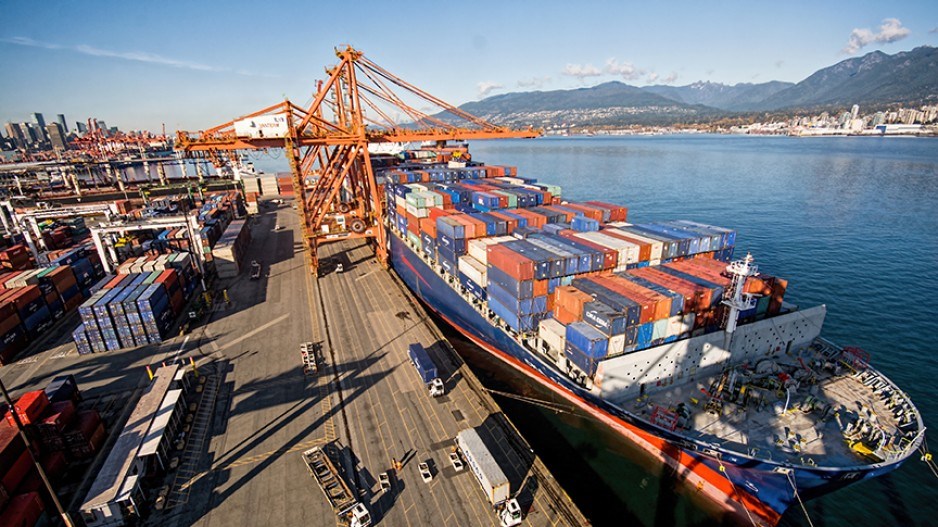GCT Global Container Terminals Inc. said May 10 it is investing $160 million at the Port of Vancouver to densify and modernize GCT Vanterm.
“GCT Global Container Terminals Inc. will continue to make private sector investments to ensure that Vancouver remains the port of choice and continues to be a competitive jurisdiction of trans-Pacific trade,” GCT president Doron Grosman said.
Grosman said the investment would allow the terminal to handle one million 20-foot-equivalent units (TEU) annually, up from the current 835,000 TEUs.
“We will increase the container-handling capacity by 25%,” he said. “We’re doing all of this to make sure we maintain our competitiveness with out customers. Customers have choices, they have options. They can go elsewhere.”
The inner harbour terminal would be able to handle larger container vessels, a capacity issue driving competition between Canadian and U.S. West Coast ports.
Grosman said the investment is estimated to be capable of generating $187 million in GDP and $77 million in wages annually. Those wages would come through 1,200 new direct and indirect jobs, Grosman said.
Additions to Vanterm will include two new ship-to-shore cranes, 10 rubber-tired gantry cranes and 19 empty-loaded container handlers.
The terminal already has five super post-Panamax cranes.
Leasehold improvements will include upgrading ship fendering systems to accommodate larger vessels, replacing and upgrading maintenance buildings, improving civil works to enable more dense container stacking (five high) and upgrading the terminal operating system and real-time positioning system.
B.C. Minister of Transportation and Infrastructure Claire Trevena called the investment a bold move in both business and environmental terms.
She pointed out container traffic as a driver of both GDP and employment, calling modern infrastructure as critical to keeping that trade competitive.
“Goods must keep moving safely and efficiently,” Trevena said. “We want to make sure B.C. is leading the pack when it comes to competition and efficiency in this sector.”




